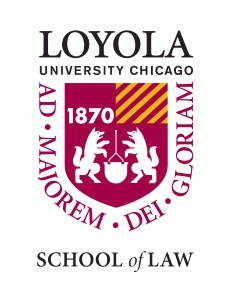As protests challenging systemic racism and police brutality continue into their third month, the relationship between police departments and public schools is finally being questioned. While school boards in cities like Seattle and Oakland have voted to suspend or eliminate school policing programs, Chicago’s Mayor and elected school board has been more reluctant to heed the growing number of voices calling to do the same. Movements for removing School Resource Officers (SROs) are not new, but as America begins to reconsider the role of the police in our communities, SROs have become an important focal point.
Earlier this year, a video went viral of a 6-year-old girl in handcuffs being escorted from

Photo by Element5 Digital on Unsplash
her school in Florida. Traumatic incidents like Kaia Rolle’s are being brought to light as new discussions emerge around the function SROs and police officers play in our schools.
Following the tragic 2018 school shooting in Parkland, Florida, the number of armed personnel in schools has increased at a high rate, as states like Florida passed legislation requiring armed security in schools. Even before this type of legislation was passed, nearly 71% of high schools nationwide had at least one armed police officer assigned to their school building. And now, as this number continues to grow, more evidence is being presented that these policies actually have a negative impact on students.
SROs and Student Outcomes
A study released in 2018 explored the relationship between increased police presence and academic outcomes for districts across Texas. Using data from 1999-2008, the study combines demographic and discipline records of over 2.5 million students in Texas with district applications for COPS (Community Oriented Policing Services) in Schools grants, a federally funded program. This study found that higher levels of police in schools are associated with increased rates of discipline, especially among students of color and decreases in both graduation and college enrollment rates. Specifically, federal funding for SROs led to a 6% increase in disciplinary rates for middle school students, a 2.5% decrease in high school graduation rates, and a decrease of 4% in college enrollment rates.
These effects are an unfortunate and unintended consequence of policies that, at least on their face, are enacted to help keep students safe from outside threats and improve community-police relationships. The COPS program examined in the 2018 study above identifies a “triad” of roles for SROs: law enforcement, counseling, and teaching.
Despite the goal of this three-pronged role, SROs report that the majority of their time in schools is focused on law enforcement; however they rarely address serious crime. Instead, adolescent conduct that would normally be dealt with through traditional school discipline policies is being handled by the police, criminalizing the behaviors. Conduct like “throwing a baby carrot” has been used as grounds to charge a student with assault and battery. This criminalization is not an accident. An ACLU report shows how the training manual for the federal COPS program encourages the criminalization of student behavior.
For example, the training manual provides a hypothetical scenario involving a student found with cigarettes and a pocketknife. The manual suggests that despite there being no grounds to arrest the student, the SRO looked for a way to charge the student with some other offense. The SRO in this example settles on a ticket for possession of cigarettes and a charge of disorderly conduct on the grounds the other students’ awareness of the pocketknife caused a disruption. Thus, a situation that could have resulted in, at worst, an out-of-school suspension, has formally enrolled the student in the criminal justice system.
A New Beginning for SROs and CPS?
Chicago has had its own share of concerning incidents like those described in the SRO training manual. So many, in fact, that the Office of the Inspector General (OIG) conducted a review of the relationship between the Chicago Police Department (CPD) and the Chicago Public Schools (CPS). The 2018 review found that, among other things, CPD did not have policies or procedures regarding SRO training, SRO roles and responsibilities, or even an up-to-date roster of SROs and the schools to which they were assigned. In June 2019, OIG was still unsatisfied with the progress CPD was making regarding their SRO program, as they had failed to implement many of the recommendations from the 2018 review.
Although there are likely to be more concerning events in the future, there is some reason to be hopeful. In January 2020, CPS and CPD released a Memorandum of Understanding, outlining the role and expectation of the relationship of CPD SROs and CPS. In a time when the Chicago Teacher’s Union garnered support across the city as they went on strike to fight for greater mental health services in CPS, it is no surprise that the $33 million agreement to entrench the role of SROs would be met with some criticism.
The MOU achieves some notable improvements to the SRO program. Notably, SROs will no longer be able to intervene in school discipline issues, but they will be allowed to make arrests if a crime has been committed. However, the practice of criminalizing student behavior will make the line between school discipline and criminal activity difficult to define and may provide SROs with a broad range of discretion.
Additionally, SROs retain “full rights to enforce law and order” while on school grounds. In an environment where student conduct has routinely been criminalized, this language does little to curtail the ability of SROs to arrest students for relatively minor behaviors.
Finally, under the new MOU, CPS is shelling out $33 million dollars during 2019-20

Photo by Kat Yukawa on Unsplash
to cover the cost of the SROs. The money spent to keep police officers in more than 70 CPS schools is, according to a joint statement, to ensure “the safety and security of all students.” However, there is little evidence to show that the presence of the officers will keep the students safe, improve the learning environment, or make them less likely to end up involved in the criminal justice system.
Despite the voices of thousands of students, parents, and community members calling to terminate the contract between CPS and CPD, Mayor Lori Lightfoot has been hesitant to make large-scale changes. Mayor Lightfoot and CPS CEO Janice Jackson have dodged action by leaving it up to Local School Counsels (LSCs) to decide if SROs will be present in their schools.
In June, the Board of Education voted 4-3 to maintain the $33 million SRO contract. One important question brought up by many commenters at the July meeting was whether LSCs who chose to remove officers would be entitled to the funds allocated for the SRO program at their school. LSCs have been meeting to vote and the Board plans to reconsider the issue in August, but whether or not SROs will be removed from all campuses and funds reallocated remains to be seen.
Matt Chapman is a 2021 J.D./M.Ed. candidate at Loyola University Chicago. Drawing on his experiences in a wide variety of educational settings, his work focuses on Education Law and Policy.

